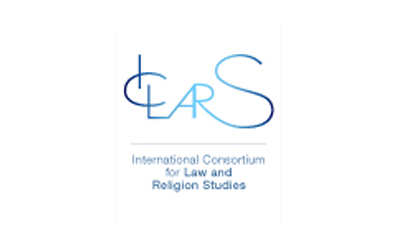Event Details
Secularism or Democracy? Associational Governance of Religious Diversity

Author: Veit Bader
Publisher: Amsterdam University Press
Publication Place: Amsterdam
Pages: 386
ISBN: 9789053569993
Category: n\a
Description
Established institutions and policies of dealing with religious diversity in liberal democratic states are increasingly under pressure. Practical politics and political theory is caught in a trap between a fully secularized state (strict separation of state and politics from completely privatized religions based on an idealized version of American denominationalism or French republicanism) and neo-corporatist or ‘pillarized’ regimes of selective cooperation between states and organized religions. The book offers an original, comprehensive conceptual, theoretical and practical approach to problems of governance of religious diversity from a multi-disciplinary perspective combining moral and political philosophy, constitutional law, history, sociology and anthropology of religions and comparative institutionalism. Proposals of associative democracy – a moderately libertarian, flexible version of democratic institutional pluralism – are introduced and scrutinized whether they can serve as plausible third way overcoming the inherent deficiencies of the predominant models in book offers an original, comprehensive conceptual, theoretical and practical approach to problems of governance.
Table of contents
Preface. Introduction: Contested religious pluralism.
Part I. Modern States and Religions, sociological and historical considerations: setting the stage.
1. Secularisation and separation? Institutional diversity of religious governance.
Part II. Reconceptualising principles and making political philosophy fit for the task of accommodating religious diversity.
2. Contextualising morality: moral minimalism, relational neutrality, fairness as even-handedness.
3. Priority for liberal democracy or secularism? Why I am not a secularist.
Part III. Dilemmas and limits of accommodation, principles and cases: applying moral minimalism.
4. Religious freedom and other human rights, moral conundrums and hard cases. 5. Relational neutrality and even-handedness towards religions: softer cases and symbolic issues.
Part IV. Institutional models of democracy and religious governance: associative democracy.
6. Moderately agonistic democracy, democratic institutional pluralism, associative democracy and the incorporation of minorities.
7. Normative models of religious governance: associative democracy, church autonomy and equal treatment of religions.
8. Dilemmas of institutionalisation; associative democracy, church autonomy and equal treatment of religions.
9. A realistic defense of associative democracy.
10. Associative democracy and education. Conclusions. Notes. References. Index of names. Index of subjects.
Established institutions and policies of dealing with religious diversity in liberal democratic states are increasingly under pressure. Practical politics and political theory is caught in a trap between a fully secularized state (strict separation of state and politics from completely privatized religions based on an idealized version of American denominationalism or French republicanism) and neo-corporatist or ‘pillarized’ regimes of selective cooperation between states and organized religions. The book offers an original, comprehensive conceptual, theoretical and practical approach to problems of governance of religious diversity from a multi-disciplinary perspective combining moral and political philosophy, constitutional law, history, sociology and anthropology of religions and comparative institutionalism. Proposals of associative democracy – a moderately libertarian, flexible version of democratic institutional pluralism – are introduced and scrutinized whether they can serve as plausible third way overcoming the inherent deficiencies of the predominant models in book offers an original, comprehensive conceptual, theoretical and practical approach to problems of governance.
Table of contents
Preface. Introduction: Contested religious pluralism.
Part I. Modern States and Religions, sociological and historical considerations: setting the stage.
1. Secularisation and separation? Institutional diversity of religious governance.
Part II. Reconceptualising principles and making political philosophy fit for the task of accommodating religious diversity.
2. Contextualising morality: moral minimalism, relational neutrality, fairness as even-handedness.
3. Priority for liberal democracy or secularism? Why I am not a secularist.
Part III. Dilemmas and limits of accommodation, principles and cases: applying moral minimalism.
4. Religious freedom and other human rights, moral conundrums and hard cases. 5. Relational neutrality and even-handedness towards religions: softer cases and symbolic issues.
Part IV. Institutional models of democracy and religious governance: associative democracy.
6. Moderately agonistic democracy, democratic institutional pluralism, associative democracy and the incorporation of minorities.
7. Normative models of religious governance: associative democracy, church autonomy and equal treatment of religions.
8. Dilemmas of institutionalisation; associative democracy, church autonomy and equal treatment of religions.
9. A realistic defense of associative democracy.
10. Associative democracy and education. Conclusions. Notes. References. Index of names. Index of subjects.









